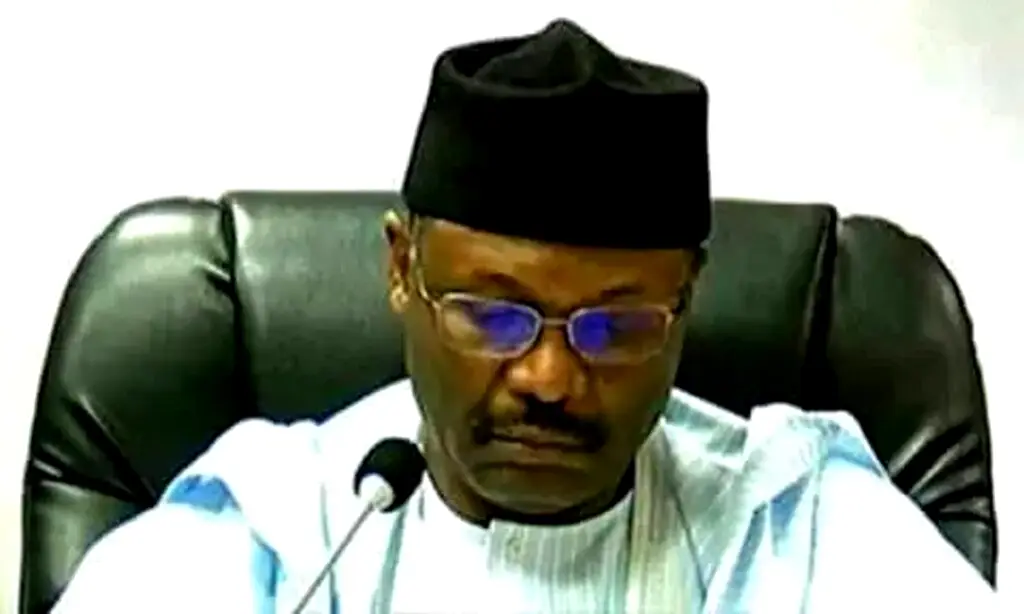Independent National Electoral Commission (INEC) has said it is very concerned about the security of voters, its personnel and election materials, party candidates and agents and other stakeholders in the election process as the nation moves towards 2023 elections.
The commission also acknowledged the expectation on it to perform its duties exceptionally despite the myriad geographical challenges that characterize the country, especially poor transportation systems.
INEC said its staff would require water transportation systems in some states, while it will require motorbikes and other human carriers in other communities to access all the polling units across the country.
Its national commissioner and chairman, information and voter education committee Festus Okoye made the remarks during the inauguration of the election crisis communication team under the auspices of the Centre for Democracy and Development (CDD) yesterday in Abuja.
He said the task of conducting elections all over the world is a daunting one, adding that election preparations, deployment and implementation are the most extensive mobilization that could happen in a country even in peacetime.
In Nigeria, he said voters would elect candidates for 1,491 constituencies, comprising one presidential constituency, 28 governorship elections, 109 senatorial districts, 360 federal constituencies and 993 state assembly seats for the 2023 general elections.
In preparations, he said INEC would be involved in recruiting and training staff and managing the logistics for their deployment to 176,846 polling units, spread across 8,809 electoral wards, 774 local government areas, 37 states of the federation and the Federal Capital Territory (FCT).
“This is in addition to applying strategic approaches to ensure the printing and collection of PVCs by registered voters and replacing lost cards before the 2023 general election.
“These tasks are better appreciated when one reasons that the projected voter population for the 2023 general election is about 95 million, which is over 20 million more than the combined voter population of the other 14 countries in West Africa.
“The Commission is expected to perform these duties exceptionally despite the myriad geographical challenges that characterize the country, especially poor transportation systems,” Okoye said.
He said the commission is determined and confident of conducting free, fair, transparent and inclusive elections in 2023.
“To perform these tasks effectively, the Commission has since recognized the role of effective communication. That is the reason behind the Commission’s Communication Policy, which it continues to update and apply.
“The Commission continues to provide timely and important information relating to the electoral process, especially in the area of changes in the law, the deepening of the use of technology in the electoral process, the conduct of elections and the management of different aspects of the electoral process,” he said.
The INEC commissioner however said there is still room for strengthening the communications system of the commission, as it experiences increasing incidents of misrepresentation, either out of insufficient appreciation of the constitutive legal instruments underlying the work of the commission; inadequate understanding of the work of the Commission or other sundry issues around political positioning and contest for power.
As a result of the way elections are pursued by politicians, he said elections are almost akin to war, and it is almost like a perennial crisis.
Consequently, he said the commission must be better prepared in communicating its positions.
“Our communication must be robust and focused on the long-term needs of the commission. It must be diverse, proactive, coordinated and consistent, with effective feedback mechanisms.
“Our communication strategies must recognize and amplify the demographic changes in the voting population; the increasing use of technology by a sizable number of Nigerians, the increasing engagement by Nigerians with the electoral process and the affirmation of the Nigerian people in their belief that the Commission has the capacity and courage to conduct transparent and inclusive elections.
“This is the purpose of this ECCT. We hope that the Team will provide consistent, timely, and targeted messaging to various stakeholders.
“Other areas of interest that we hope the ECCT will assist the Commission include the development of voter education materials, production of a press kit and responding to fake news and disinformation.
“In addition, we are ready to work with you to educate critical stakeholders and the general public on critical aspects of the forthcoming general election, including innovations the Commission has introduced to improve election service delivery, particularly leveraging digital technologies, collection of PVCs, accreditation and voting procedure and election day logistics.
“With the profound expertise and experience in this team, both from the media and election management angles, I have no doubt that these will be achieved,” he added.
He assured stakeholders that the Commission will continue to work in synergy with them to ensure a free, fair, credible and peaceful election in 2023 to protect the will of the Nigerian people.


